From Lab to Pilot Scale: Modular Emulsifying Homogenizers Cut R&D Costs by 60% for CBD and Hemp Oil Emulsions
In the development of CBD (cannabidiol) and hemp oil emulsions, scaling from laboratory to pilot scale has long been a critical bottleneck, hindering both cost efficiency and production effectiveness. Traditional equipment often faces challenges such as high energy consumption, uneven mixing, and difficulties in linearly scaling process parameters during production expansion—issues that drive soaring research and development (R&D) costs. Jiangsu GangBen Mixer Manufacturer has achieved a breakthrough by innovating in modular homogenization and mixing technology, successfully reducing R&D costs for CBD and hemp oil emulsions by 60% and providing a replicable solution for large-scale industry production.
I. Pain Points of Traditional Processes: The "Discontinuity" from Lab to Pilot Scale
At the laboratory stage, researchers typically use small-scale homogenizers or ultrasonic disruptors to prepare CBD emulsions. While these devices can achieve nanoscale particle size control, scaling production from 500 mL to 50 L causes exponential growth in energy consumption for traditional high-pressure homogenizers. For example, when a company produced 1,000 L of CBD emulsion using traditional equipment, homogenization alone accounted for 35% of total production costs, and batch-to-batch stability variation exceeded 15%.
A more severe challenge lies in the non-linear scaling of process parameters. The 20 MPa homogenization pressure used in laboratories may result in insufficient shear force during large-scale production due to altered fluid dynamics. Conversely, blindly increasing pressure leads to three key issues:
Active ingredient degradation: CBD is prone to isomerization under high temperature and pressure, causing over 20% loss of effective components.
Increased equipment wear: The wear rate of titanium alloy components in traditional homogenization valves triples under high pressure, surging maintenance costs.
Reduced emulsion stability: The standard deviation of particle size distribution expands from 0.2 μm in labs to 0.8 μm in pilot-scale production, triggering phase separation.
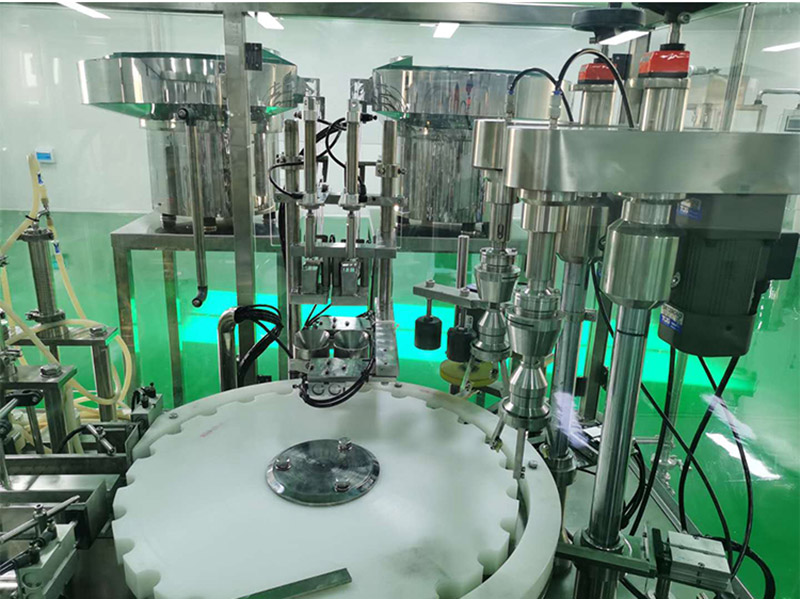
II. GangBen’s Modular Breakthrough: Three Innovations Redefining Production Logic
By integrating computational fluid dynamics (CFD) simulations and materials science, Jiangsu GangBen Mixer Manufacturer has developed the world’s first Modular Homogenizer Mixer (MHM) system, featuring three core innovations:
1. Dynamic Pressure Compensation Module
Unlike traditional homogenizers with fixed valves, the MHM system incorporates pressure sensors and intelligent regulating valves that continuously monitor fluid resistance and automatically adjust valve clearance. In a pilot project with a client, this technology reduced pressure fluctuation from ±5 MPa to ±0.8 MPa, ensuring CBD emulsion D90 particle size remained stable below 180 nm—improving stability by 40% compared with traditional equipment.
2. Multi-Stage Shear Synergy Module
Drawing inspiration from food industry double-planetary mixers, the MHM system combines high-pressure homogenization with high-shear emulsification in a modular configuration. When processing high-viscosity hemp oil matrices, the system first achieves pre-dispersion via double-layer wall-scraping stirring, followed by nanoscale crushing through high-pressure homogenization. This staged approach cuts energy consumption by 55% while maintaining viscosity control precision at ±2 cP (meeting laboratory-grade standards).
3. Rapid Tooling Change Module
To address diverse CBD product needs, GangBen developed a quick-release homogenization head design. By replacing diamond-coated homogenization valves with different pore sizes, a single machine can accommodate both oil-in-water (O/W) and water-in-oil (W/O) emulsion systems. Client testing shows product switching time dropped from 8 hours (traditional equipment) to 45 minutes, boosting overall equipment utilization by 300%.
III. Pilot-Scale Data Validation: Dual Improvements in Cost and Efficiency
In a 2024 collaborative project with a listed company, the MHM system demonstrated significant advantages:
Cost reduction: Producing 1,000 L of CBD emulsion cost RMB 128,000 with traditional processes (RMB 45,000 for homogenization alone). With the MHM system, total cost fell to RMB 51,000—a 60% reduction—with RMB 32,000 saved solely in homogenization.
Efficiency gains: Pilot batch cycles shortened from 72 hours to 18 hours, equipment footprint reduced by 65%, and personnel requirements dropped from 5 to 2.
Quality metrics: Stability tests showed phase separation time after storage extended from 30 days (traditional) to 90 days, with particle size uniformity (CV < 5%) maintained across batches.
Related Product: Vacuum Emulsifier Homogenizer Mixer
News
- Latest News
- Solutions
- FAQ
Recommend Products
-
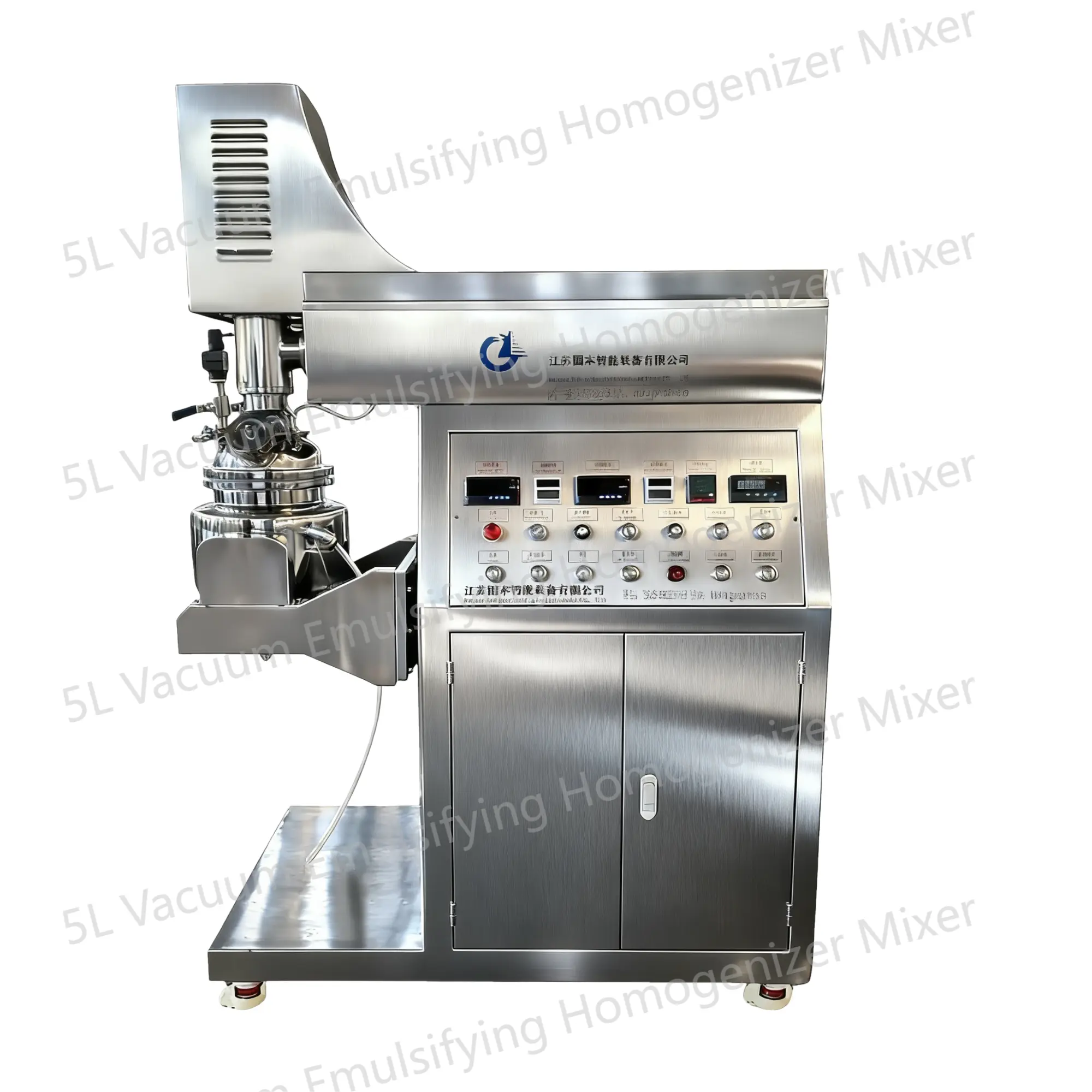 5L Vacuum Emulsifying Homogenizer Mixer
5L Vacuum Emulsifying Homogenizer MixerThe 5L vacuum emulsifying mixer is a device designed for emulsifying and mixing various substances in a vacuum environment. This equipment is equipped with a mixing tank with a capacity of 5 liters and is widely applied in industries such as food, pharmaceuticals, cosmetics, and pesticides.
-
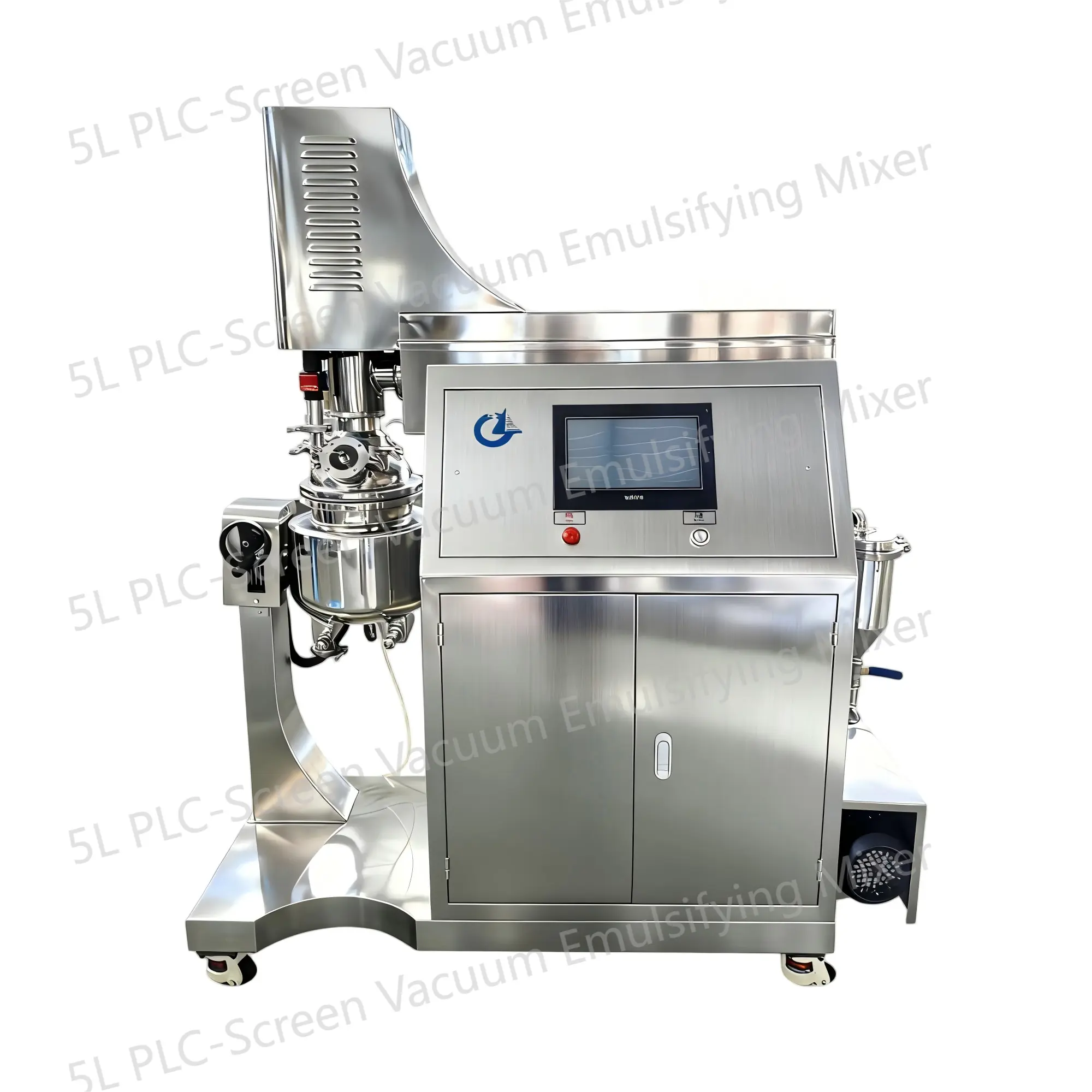 5L PLC-Screen Vacuum Emulsifying Mixer
5L PLC-Screen Vacuum Emulsifying MixerThe 5L PLC-Screen Vacuum Emulsifying Mixer is a device designed for emulsifying and mixing various substances in a vacuum environment. This equipment is equipped with a mixing tank with a capacity of 5 liters and is widely applied in industries such as food, pharmaceuticals, cosmetics, and pesticides.
-
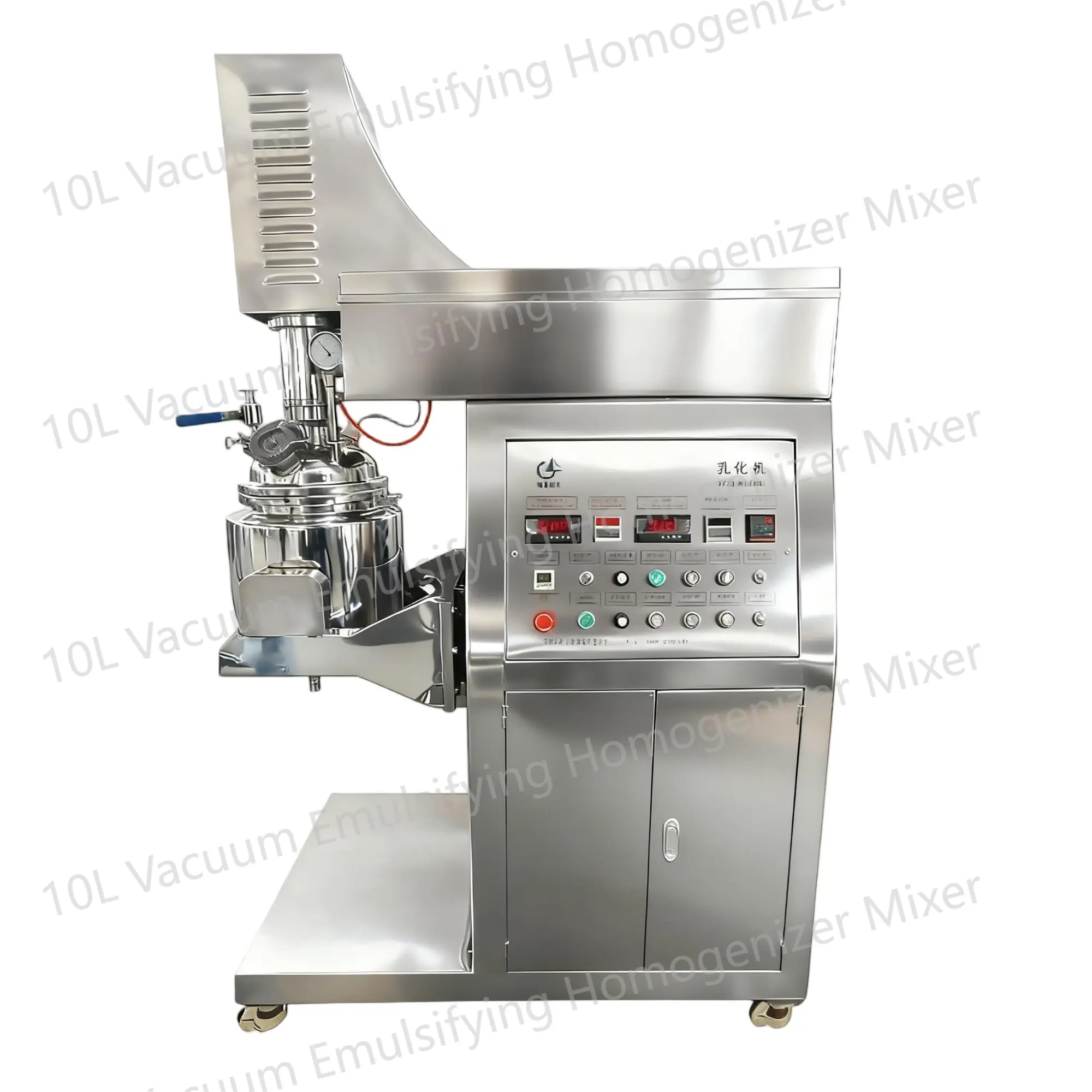 10L Vacuum Emulsifying Homogenizer Mixer
10L Vacuum Emulsifying Homogenizer MixerThe 10L Vacuum Emulsifying Mixer is a device used for emulsifying and mixing various substances in a vacuum environment. It is commonly used in industries such as food, cosmetics, and pharmaceuticals.
Recommend Faq
-
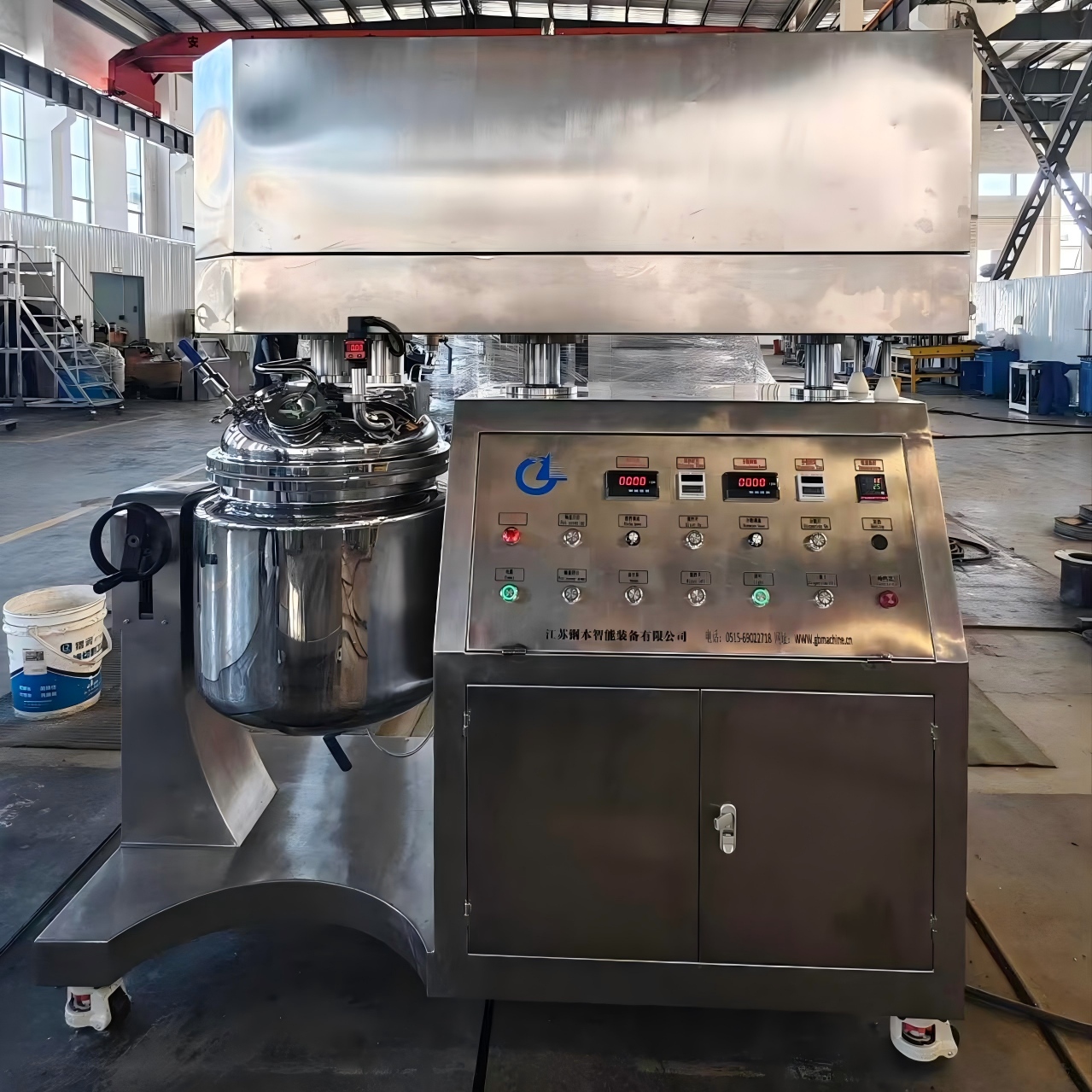 Feb 06,2026
Feb 06,2026Intelligent Vacuum Emulsifier: How does the Internet of Things achieve 'One-Click Emulsification'?
-
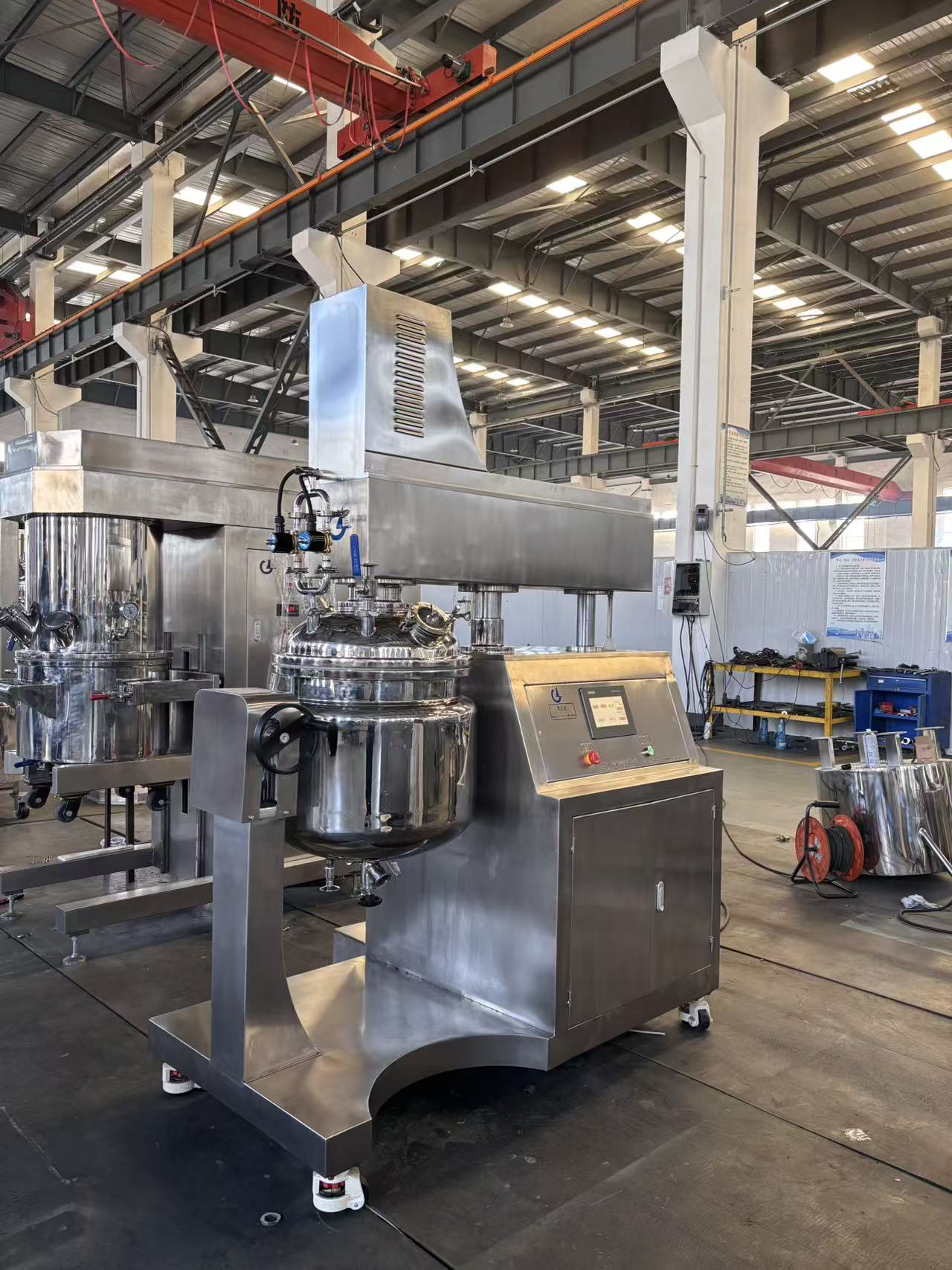 Feb 06,2026
Feb 06,2026From Skin Care Products to Vaccines: Cross-border Applications of Vacuum Emulsifiers in the Pharmaceutical and Daily
-
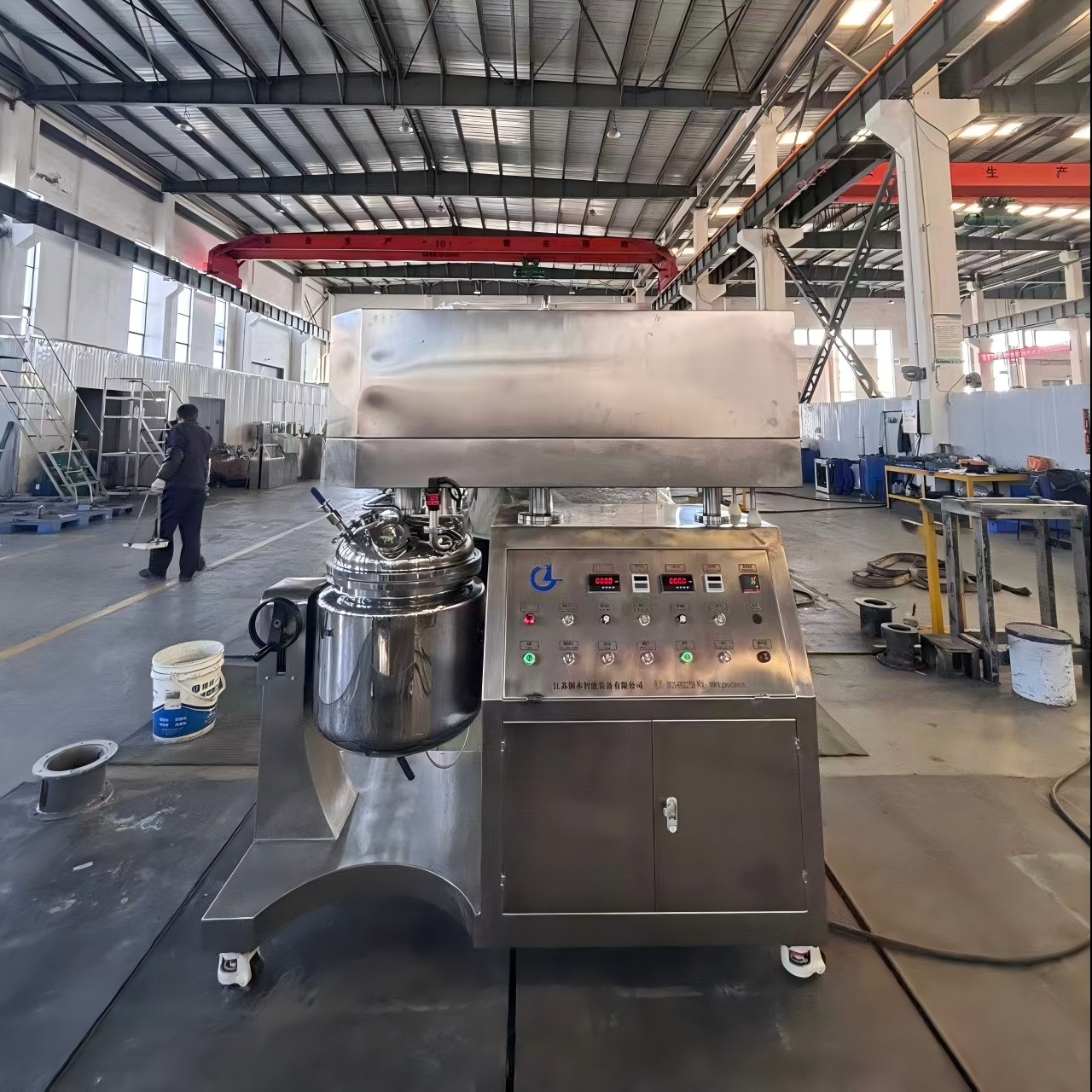 Jan 28,2026
Jan 28,2026Vacuum Degree, Material, and Homogenizing Head: 5 Major Misunderstandings to Avoid When Selecting a Model


 English
English Russian
Russian French
French Spanish
Spanish Portuguese
Portuguese Korean
Korean Japanese
Japanese Thai
Thai


